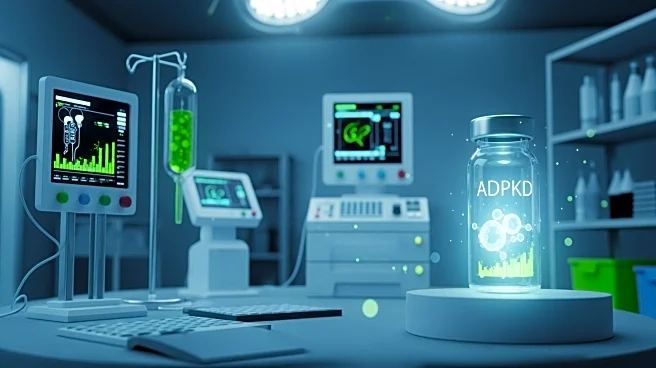What's Happening?
Renasant Bio has announced its launch to develop next-generation treatments for autosomal dominant polycystic kidney disease (ADPKD), a leading genetic cause of end-stage renal failure. The company is focusing
on creating oral small molecule corrector and potentiator therapies that target the underlying biology of ADPKD. These treatments aim to restore the function of polycystin proteins across various mutations to halt disease progression. Renasant Bio has secured $54.5 million in seed financing from investors including 5AM Ventures, Atlas Venture, OrbiMed, and Qiming Venture Partners USA. The funding will support the progression of Renasant's lead corrector program and the discovery efforts for its potentiator program.
Why It's Important?
ADPKD affects over 12 million people globally and currently lacks effective disease-modifying therapies. Renasant Bio's approach to directly address the underlying protein dysfunction in ADPKD could significantly improve treatment options for patients. By developing therapies that work across a broad spectrum of mutations, Renasant Bio aims to offer solutions that are applicable to a larger patient population. The company's efforts could reshape the treatment landscape for ADPKD, providing hope for those affected by this chronic condition.
What's Next?
Renasant Bio is advancing its lead corrector program through preclinical development and is working on a potentiator to enhance ion flux through the polycystin channel. These programs are expected to progress rapidly, with the potential for synergistic effects when combined. The company is led by a team of experts in ADPKD biology and drug development, which positions it well to make significant advancements in the field.
Beyond the Headlines
The launch of Renasant Bio highlights the growing interest and investment in genetic and rare disease research. The company's focus on precision-guided development of novel therapies reflects a broader trend in biopharmaceutical innovation aimed at addressing complex genetic disorders.










